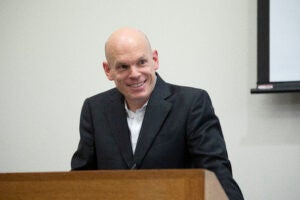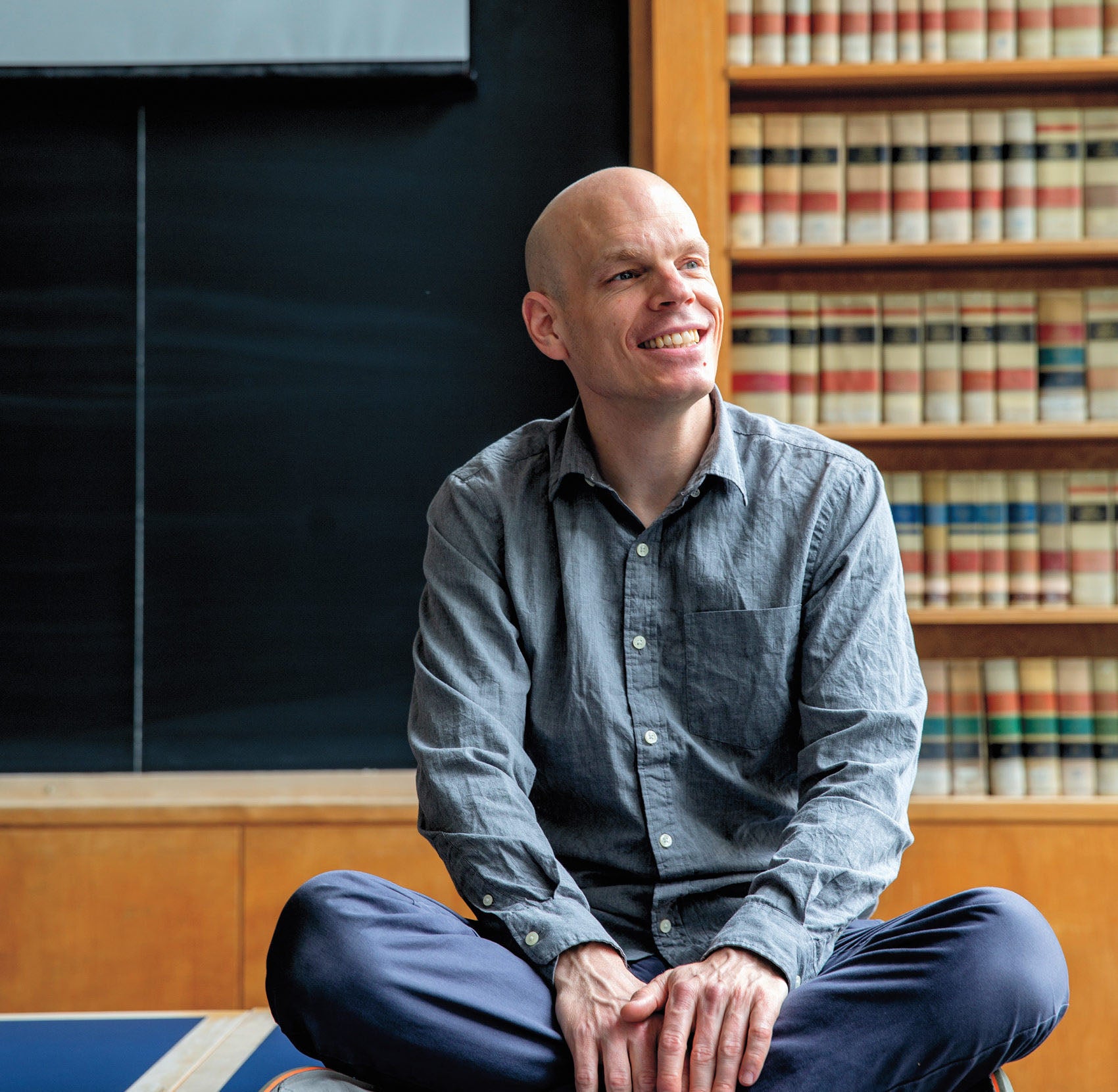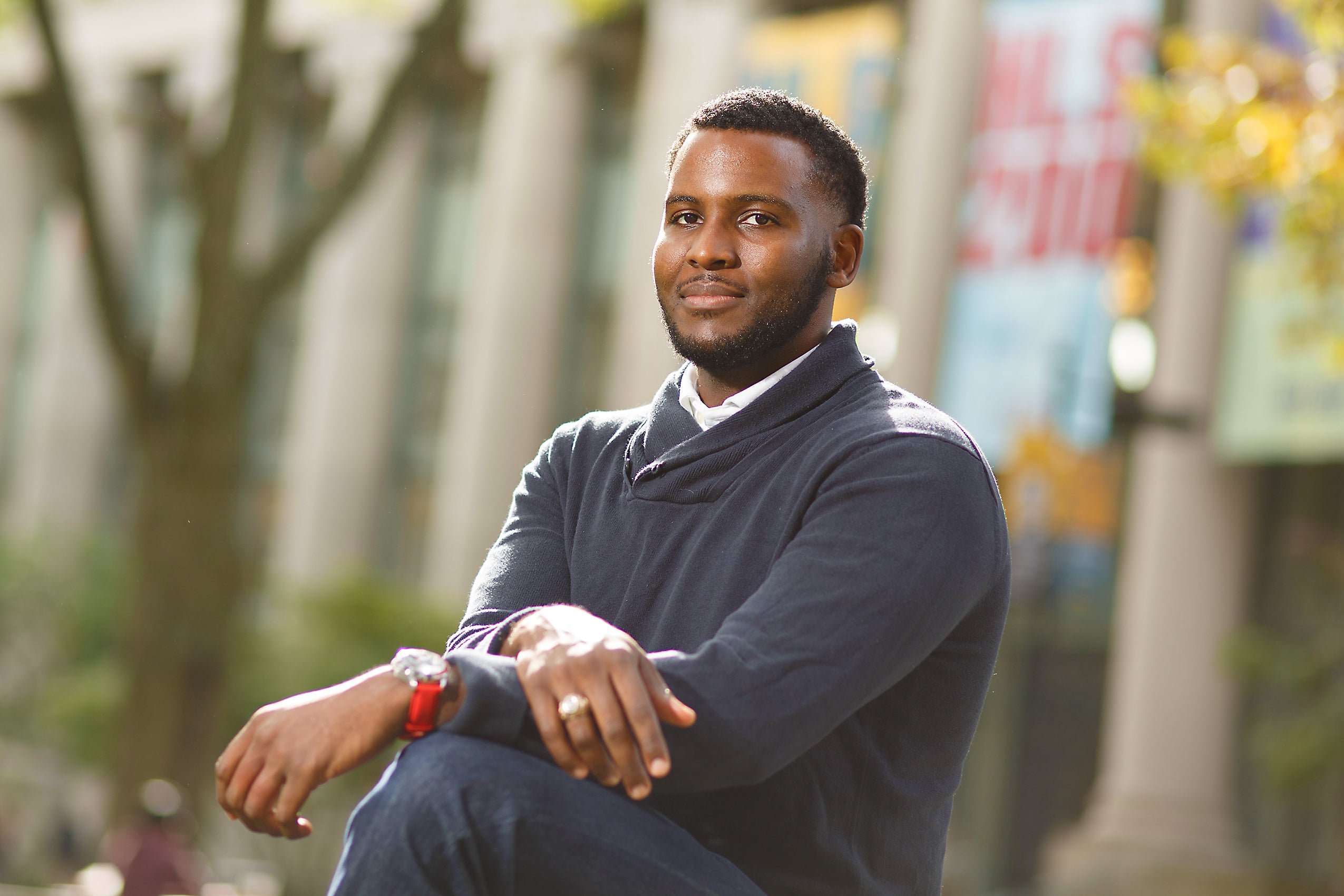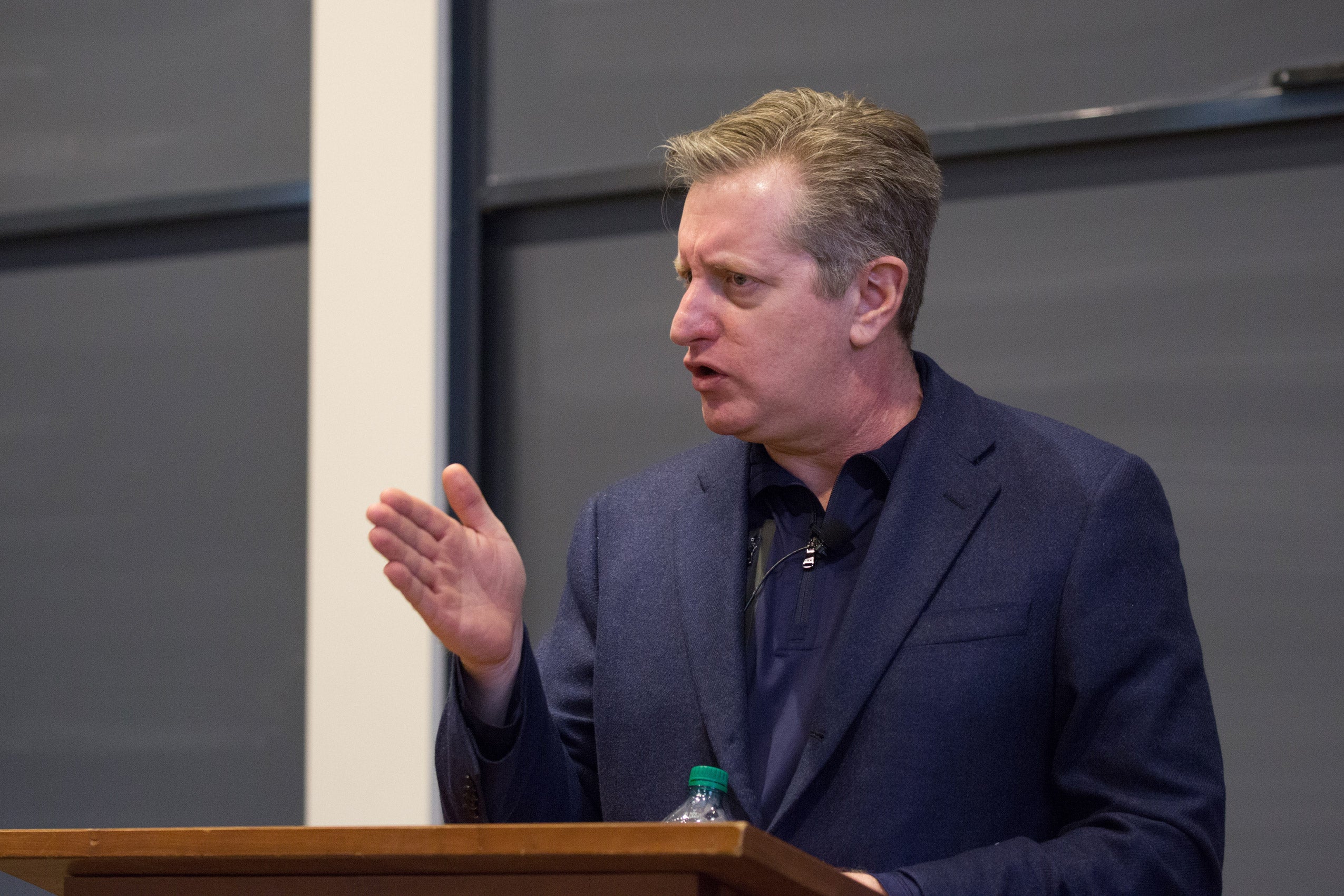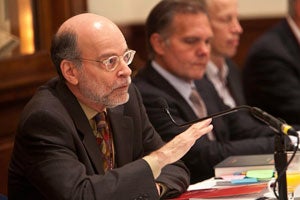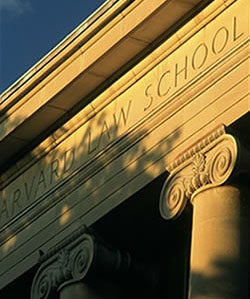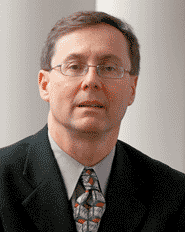People
Holger Spamann
-
‘Misunderstanding how the world works’
November 9, 2022
Harvard Law Professor Mark Roe says that Wall Street short-termism has gotten a bad rap.
-
The myths and reality of common and civil law
October 5, 2022
What are the real differences between common and civil law systems? Probably not the ones lawyers typically think about, said Harvard Law School Professor Holger Spamann S.J.D. ’09 in a lecture commemorating his appointment as Lawrence R. Grove Professor of Law.
-
Harvard experts slam EU report on long-term strategic thinking
October 28, 2020
Four Harvard professors have criticised a recent European Commission report that proposes reforms to encourage long-term strategic thinking. The commission’s report aims to tackle short-term management of companies and make them more sustainable. The wince-inducing conclusion of four Harvard academics is that the commission report contains “deep flaws”, “mistakenly conflates” key factors, fails to engage with alternative sources of evidence and “touts cures” backed by “little evidentiary support”. Some of the cures proposed by the report, the four argue, could be “counterproductive and costly”. Amounting to a brutal comment on the complexity of sustainability, The European Commission’s Sustainable Corporate Governance Report: A Critique, illustrates the difficulty governments may encounter when attempting to legislate for long-term strategic thinking in large listed companies. The European Commission’s report, written by the business advisory firm EY, concludes that far too many company directors across the EU continue to think short term instead of acting in the long-term interests of their stakeholders. It presents evidence and then sets about detailing the remedies. The Harvard professors—Mark Roe, Holger Spamann and Jesse Fried of Harvard Law School, and Charles Wang of the university’s business school—say it’s mostly wrong. First, the academics argue, the report confuses the definition of the problem. In focusing on the issue of “short-term” business thinking, they say the report “conflates” timeframes with problems stemming from “externalities” and the “distribution” of benefits. That’s three topics probably needing different cures, they say. “For policy analysis, however, the conflation is seriously debilitating. Real world companies will often fall short on all three dimensions, but cures for one may exacerbate another,” they write. Then there is the issue of flawed evidence of short-termism.
-
Harvard Law excels in SSRN citation rankings
April 6, 2020
Statistics released by the Social Science Research Network (SSRN) indicate that, as of the beginning of 2020, Harvard Law School faculty members featured prominently on SSRN’s list of the most-cited law professors.
-
Common Knowledge
August 28, 2019
Harvard Law School’s new online course Zero-L helps prime incoming students for success
-
As part of a cooperative agreement between the two schools, Harvard Law Professors Glenn Cohen, Holger Spamann, and Lucie White traveled to France in June to teach at the eighth annual Intensive Doctoral Week (IDW) at the law school of the Institut d’Études Politiques de Paris, more commonly known as “Sciences Po.”
-
Value Innovation
June 26, 2018
During his nearly 10 years on the Harvard Law faculty, Holger Spamann S.J.D. ’09 has always enjoyed teaching corporate finance, but he’s also found it challenging. Some students have worked as traders at hedge funds or in private equity and others have been newly minted English majors who haven’t thought much about business concepts. The solution he has been exploring this year is a corporate finance course divided into four different modules, any of which students can opt out of depending on their knowledge level.
-
Military experience provides “a level of discipline and willingness to work hard even when it’s uncomfortable,” says Nathan Garrett Jester ’20
November 8, 2017
In becoming a Marine and then a lawyer, Nathan Garrett Jester ’20 is interested in someday going into local or state politics in his home state of Georgia, to serve the community where he was born and raised.
-
Lesson from the Big Crash
March 15, 2017
Steve Eisman ’88, an investor famed for predicting the 2008 financial crisis, spoke to HLS students in early March about why the economy crashed and whether the administration of President Donald Trump will undo the financial regulations enacted afterward.
-
Supreme Court Justice Breyer talks art — in French
February 14, 2017
U.S. Supreme Court Justice Stephen Breyer has given a talk — entirely in French — about the artistry of courtroom sketches. Breyer spoke in French on Monday during the hour-long forum at the French Cultural Center in Boston. The event was a dialogue with artist Noëlle Herrenschmidt, who draws courtroom scenes in France. Holger Spamann, a Harvard Law School professor who attended the talk, says Breyer also made a case for the professionalism of judges and the importance of their detachment from politics.
-
Holger Spamann, expert in corporate governance and finance, appointed professor of law at Harvard
May 10, 2016
Holger Spamann L.L.M. '01 S.J.D. '09, an expert in corporate governance and finance, has been appointed as a tenured professor of law at Harvard Law School.
-
The New Empiricists
May 4, 2015
For the growing number of empiricists at HLS, there’s nothing quite so satisfying—or unimpeachable—as resolving a thorny, often contentious, legal or policy question through rigorous analysis of cold, hard data.
-
Thirteen Harvard Law School faculty listed among SSRN’s 100 most-cited law school professors
January 29, 2015
Statistics released by the Social Science Research Network (SSRN) indicate that, as of the end of 2014, Harvard Law School faculty members featured prominently on SSRN’s list of the 100 most-cited law professors.
-
How It All Adds Up
July 1, 2013
Stephanie Atwood ’13 started her 3L year several days early in a basement classroom of Wasserstein Hall in a new intensive “boot camp” on accounting and finance. In just three days, Atwood and 44 classmates learned a credit’s worth of previously foreign-sounding concepts such as internal rate of return and the cost of capital.
-
A roundtable at HLS on corporate time horizons
October 22, 2012
A group of senior corporate managers, finance practitioners, and academics from Europe and the U.S. gathered at HLS on Sept. 14-15 for a conference on the role of corporate governance in encouraging long-term value in public corporations.
-
Harvard faculty and fellows contribute most of the ‘Top Ten Corporate and Securities Law Articles’ of 2010
June 3, 2011
This year’s list of “Top Ten Corporate and Securities Articles” based on an annual poll of corporate and securities law academics includes six articles authored or co-authored by Harvard Law faculty and fellows. The top ten articles, selected from a field of more than 440 pieces, will be reprinted in an upcoming issue of the Corporate Practice Commentator.
-
Faculty Scholarship: Bebchuk, Cohen and Spamman on Executive Compensation at Bear Stearns and Lehman Brothers
July 12, 2010
A recent study, “The Wages of Failure: Executive Compensation at Bear Stearns and Lehman 2000-2008,” by Professor Lucian A. Bebchuk LL.M. ’80 S.J.D. ’84, Visiting Professor Alma Cohen and Lecturer on Law Holger Spamann S.J.D. ’09 refutes the widespread assumption that the wealth of the top executives at Bear Stearns and Lehman Brothers was largely wiped out when their companies collapsed. According to the authors, many have used this account to dismiss the view that pay structures caused excessive risk-taking, but, they say, that standard narrative turns out to be incorrect.
-
"Paid to Fail," an op-ed co-written by HLS Professor Lucian Bebchuk LL.M. ’80 S.J.D. ’84, Visiting Professor Alma Cohen, and Lecturer on Law Holger Spamann S.J.D. ’09 appeared in Project Syndicate on March 18, 2010. It is the latest installment of Professor Bebchuk's monthly column for the syndicate.




